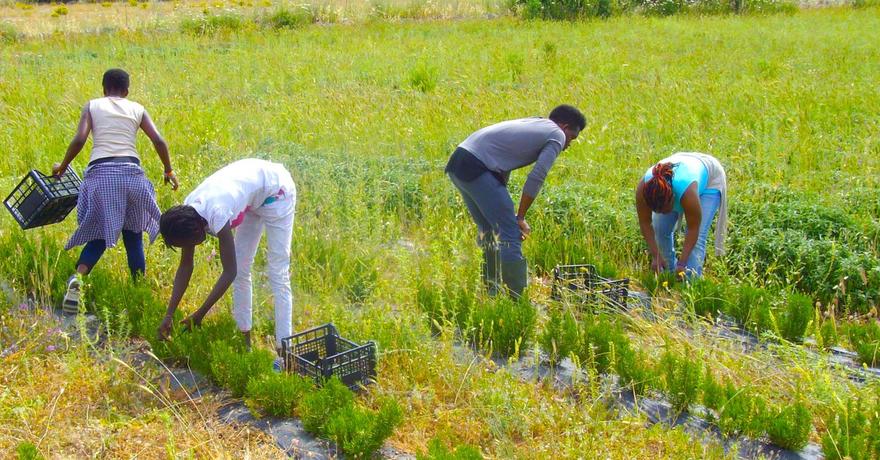Aromatic and Medicinal Plants training for Young Migrant Women, Sicily

Renewables have the potential of improving the quality of life for millions around the world while advancing progress in all areas of development.
By May East, Unitar Fellow |
In May 2017, Gaia Education and Sicilia Integra, in partnership with Arcolaio and Passwork and supported by Eileen Fisher, conducted a week-long training in growing and processing aromatic and medicinal plants for 12 migrant young women in Sicily. The women ranged in age from 16 to 30 and had come from various parts of Africa including Gambia, Mali and Nigeria.The women ranged in age from 16 to 30, had come from various parts of Africa including Gambia, Mali and Nigeria, and had been through difficult experiences during the migration process.
Whilst the training was hugely successful in a practical sense, the most important learning for the group rested in the empowerment that each woman experienced when coming together in such a collective way and providing mutual support.

Time was taken to structure the content of the course in such a way to adopt a holistic approach, allowing the educators to deliver learning outcomes whilst leaving room for the emergence of feelings, attitudes, characters, and disputes.
To ensure understanding, linear teaching switched to circular enquiry and storytelling was a common occurrence throughout the training, with an emphasis on the ‘Why?’ ‘How?’ and ‘What?’. One Gambian student commented that this new way of learning empowers everyone “to discover their intelligence and gifts” and that “no one is left behind”.
The content of the practical training for growing of aromatic and medicinal herbs, such as sage and rosemary, included modules for preparing soil, planting and harvesting plants. The students were taught various processing methods for the plants, harvested from the Arcolaio gardens, which they then packaged. This was a very empowering experience, as they witnessed how simple the process to transform plants for resale is.

Theoretical modules included plant anatomy, use of the drug, and active principles that make the plant aromatic or medicinal. Particular interest was shown for cosmetic use of herbs on the face and hair.
For the business dimension of the training, it was stressed to the students that the large amount of land available locally, the resurgence in the organic produce market, and the Mediterranean climatic condition of the Iblei Region (highest level of biodiversity in Europe), provided rich opportunity for developing job and market opportunities. This provoked much enthusiasm and passion. Corporations such as Lush, were given as examples of potential buyers.
The students wished to mark the end of this ‘life-changing’ course with a day of celebration. Herbs were planted in a public flowerbed, and singing and dancing followed. Gaia Education’s aim is to provide these students with more practical, post-training support as they seek access to local land to set up projects and initiatives for income generating opportunities.


0 comments
Leave a comment